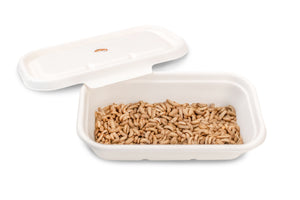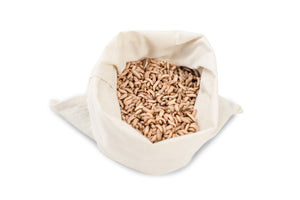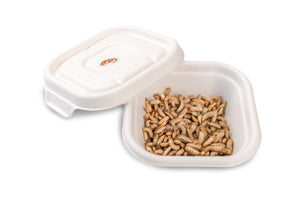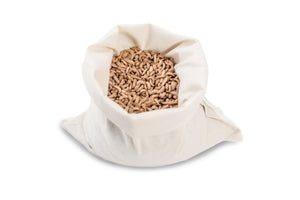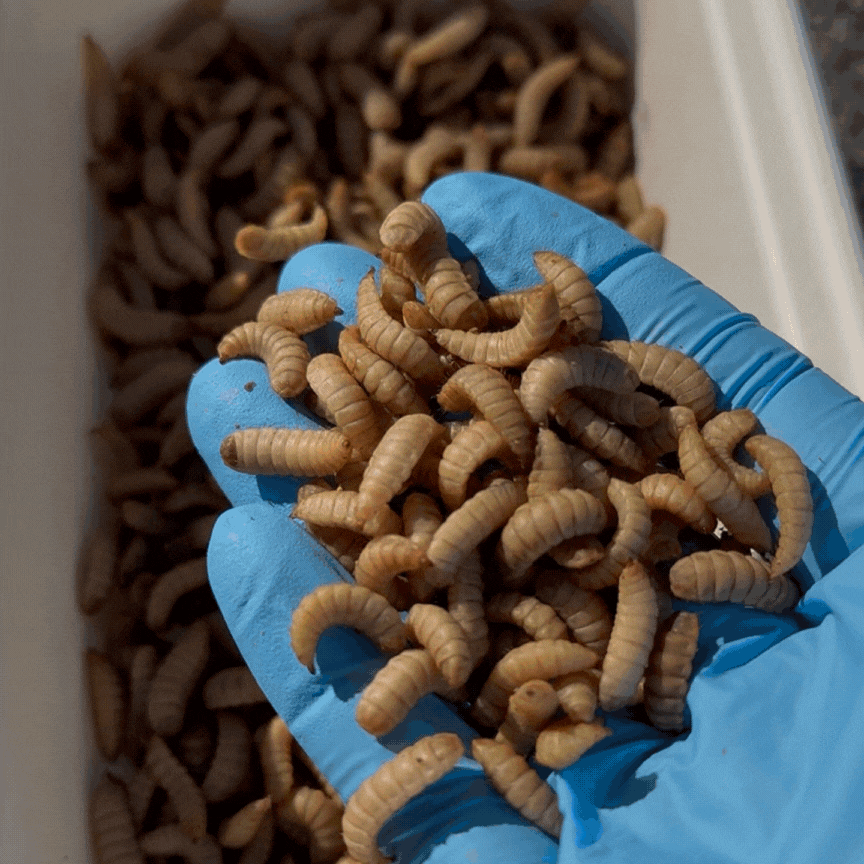Nourishing the Earth and Your Flock: The Environmental Benefits of Feeding Chickens Black Soldier Fly Larvae Reared on Food Waste
Introduction
As conscientious pet owners, we are constantly seeking ways to minimize our environmental impact while ensuring the well-being of our animals. When it comes to pet chickens, incorporating sustainable and eco-friendly practices into their care can have a positive ripple effect. One such practice is feeding chickens Black Soldier Fly Larvae (Hermetia illucens) reared on food waste. In this article, we will explore the environmental benefits of this feeding approach and why it is good for the planet.
-
Utilising Food Waste: Food waste is a significant global problem, contributing to landfills and greenhouse gas emissions. By feeding Black Soldier Fly Larvae reared on food waste to your chickens, you directly address this issue. Black soldier fly larvae are incredibly efficient at converting organic waste into protein-rich biomass. By diverting food waste from landfills and utilising it as larval feed, you not only reduce methane emissions but also contribute to the circular economy by upcycling food waste into valuable protein sources.
-
Reducing Landfill Burden: When organic waste such as fruit and vegetable scraps, leftover grains, and other food by-products end up in landfills, they decompose under anaerobic conditions, releasing methane—a potent greenhouse gas. Methane significantly contributes to global warming and climate change. By feeding Black Soldier Fly Larvae with food waste, you divert this organic material away from landfills, effectively reducing methane production and alleviating the burden on our environment.
-
Sustainable Protein Source: Traditional livestock farming relies heavily on resource-intensive protein sources such as soybeans and fishmeal, leading to deforestation, habitat destruction, and overfishing. Feeding chickens Black Soldier Fly Larvae provides a sustainable alternative. These larvae can be reared on a variety of food waste, including fruit and vegetable scraps, grain waste, and discarded bakery items. By utilising these larvae as a protein source, you reduce the demand for traditional protein sources and contribute to sustainable agriculture practices.
-
Water Conservation: Livestock farming, including chicken production, requires substantial amounts of water for feed production, animal hydration, and cleaning. However, rearing black soldier fly larvae for chicken feed is far less water-intensive compared to traditional protein sources. Larvae production requires minimal water, especially when compared to the water-intensive nature of growing crops like soybeans. By opting for Black Soldier Fly Larvae as chicken feed, you indirectly conserve water resources and help mitigate water scarcity challenges.
-
Nutrient Cycling and Fertilizer Production: The excrement from chickens fed Black Soldier Fly Larvae reared on food waste, can serve as a valuable nutrient-rich fertilizer. Chicken manure, combined with larvae castings, creates a potent natural fertilizer that can be used to nourish gardens and agricultural fields. By utilising chicken waste in this manner, you close the nutrient cycle, reducing the need for synthetic fertilizers and minimizing nutrient runoff into water bodies, which can lead to pollution
So where can I get Black Soldier Fly Larvae?
At Larvalicious! We are an Uban farm based in QLD Brisbane. You can pick-up from the farm or we deliver (excluding WA) straight to you!
Conclusion
Feeding chickens Black Soldier Fly Larvae reared on food waste is a commendable practice for environmentally conscious poultry enthusiasts. By diverting food waste from landfills, reducing methane emissions, conserving water, and contributing to sustainable agriculture, you actively promote a healthier planet.
Additionally, the nutrient cycling potential of chicken manure combined with larvae castings provides an opportunity for sustainable fertilization practices. By incorporating this sustainable feeding approach, you demonstrate how small changes in our daily routines can make a significant positive impact on both our pet chickens' health and the health of our planet.
